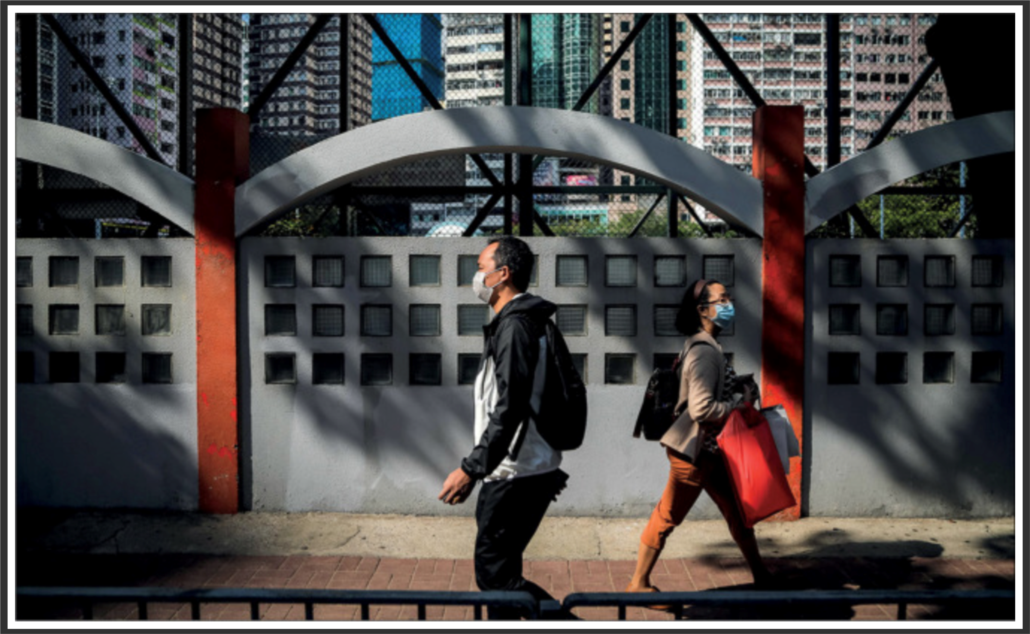"Wearing masks in the community during the COVID-19 epidemic season" was first commented on Lancet Magazine through the topic "Wearing face masks in the community during the COVID-19 pandemic: altruism and solidarity" (published). online April 16, 2020). Although there are no scientific studies to prove the effectiveness of wearing masks in the community environment, but theoretically, the authors affirm that wearing masks in the community at once shows altruism. and unity of the whole community, wearing a mask that protects both themselves and the community.

As the COVID-19 pandemic progressed, there was a debate regarding the use of masks by individuals in the community. Previously, WHO also had some inconsistencies with regard to guidance on this issue (January 2020). WHO has not recommended the use of masks in healthy people in the community as a preventive measure for SARS-CoV-2 infection in guidelines dated 6/4/2020. The UK Department of Public Health (PHE) also makes a similar recommendation. In contrast, the US Centers for Disease Control and Prevention (CDC) has officially recommended the use of fabric masks in public and many other countries such as Canada, South Korea and the Czech Republic have asked for their people must wear masks in public. There have been studies evaluating the evidence in support of mass masking during this pandemic. And now, WHO and UK Ministry of Public Health are reviewing this issue.
A person wears a mask usually to protect themselves, but at the same time an important effect on public health is to protect others from breathing in their own respiratory drops. This is also an important way of transmission of the SARS-CoV-2 virus because it has spread since the infected person has no symptoms. WHO and PHE have so far not recommended mass masks because they believe that there is no evidence that this method prevents respiratory viral infections including SARS-CoV-2. Previous studies on the use of masks in non-medical settings have mainly focused on the protection of the carrier and is related to the flu. These studies are not designed to evaluate the effectiveness of mass masking in the entire community. There are also no studies to evaluate the degree of compliance with the mass masking versus its effectiveness.
Lack of scientific evidence does not equate with inefficiency of mass masking. In fact, recommendations based on mechanical reasons (such as covering the mouth to reduce respiratory transmission) are not based on evidence from clinical trials. In addition, the recommendation to use respirators to minimize the risks and impacts of pandemic influenza was adopted in a workshop convened by WHO in 2019; The workshop concluded that although there is no evidence from clinical trials of infectious reduction efficacy, there is a mechanical justification and potential effectiveness, and WHO has recommended that masks should be worn at public place to prevent pandemic flu. Therefore, according to the authors, rejecting a low-cost intervention such as a mass masking is a potentially harmful decision.
Another concern is the shortage of mask supplies in the community at present in several countries around the world. Medical respirators must be used exclusively for medical personnel. To control the source of infection, as recommended by the CDC, cloth masks may be sufficient if everyone wears them. Fabric masks can be easily made or produced at home and reused after washing.
Finally, there are concerns that wearing a mask can artificially cause a sense of security by not implementing other infection control measures such as keeping social distance and hand washing. The authors argue that there is no empirical evidence that a mass masking means other infection control measures will be ignored. However, it is important to emphasize the importance of these measures letting people know even when they are wearing a mask.
Mass masking is also underpinned by the fundamentals of public health. First, wearing a mask is that controlling the hazard at the source is at least as important as the method of minimizing the hazard (washing hands). The benefits of mass masking can also be seen as interventions that provide moderate individual benefits but large population benefits. Wearing a mask can be compared to safe driving, road users and pedestrians all benefit from safe driving.
Wearing a mass mask to control the source of infection is a useful, low-cost addition to keeping social distance and hand hygiene during the COVID-19 pandemic. The mass masking has shifted the focus from self-defense to altruism and is a symbol of social solidarity in the global response to the pandemic.
Weight: Hộp 50 cái
Weight: Hộp 50 cái
Weight: Hộp 50 cái
Weight: Hộp 50 cái

.jpg)
.jpg)

Address: 52/23/3/12 Road No. 4, Hiep Binh Phuoc Ward, Thu Duc District, HCM City
Office address: 413/7/16 Le Van Quoi, Binh Tri Dong A Ward, Binh Tan District, HCM City
Hotline: (+84) 28 3636 8090 - (+84) 918 913 146
Email: bangtaibuoctien@gmail.com
Web: busamas.com
Hotline